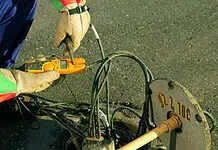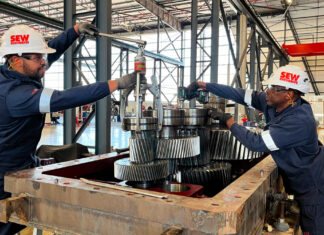John Lawson – CEO of the Cape Chamber of Commerce and Industry
It’s a sad indictment against ourselves when good news about crime sounds like an April Fool’s Day joke.
But I’m happy to report that police truly are winning the battle against criminal groups operating in the construction sector, according to Public Works and Infrastructure Dean Macpherson.
Macpherson has outlined the success of an historic partnership between SAPS, National Treasury and DPWI. Since November a total 745 construction-related extortion cases have resulted in 240 arrests.
This is welcome news indeed and a huge relief for an embattled sector that has been under siege from criminal groups operating as a mafia inside an essential economic sector.
The crimefighting success speaks to the power of pooling resources to tackle impediments to growth. Working together undoubtedly resulted in the additional momentum required to turn the tide against the criminals.
Macpherson had this to say about the arrests: “This is a major breakthrough in our fight against criminals and gangsters who think they can threaten our projects with impunity.”
The breakthrough also illustrates the vital importance of private sector involvement in confronting ongoing challenges affecting economic life. The partnership between SAPS, DWPW and National Treasury was in part a response to pressure from construction sector stakeholders who drew attention to the negative impacts of rampant criminality.
By making ourselves heard we can help remove impediments to growth.
It is notable that Macpherson himself highlighted the negative impact the 30% local procurement rule is having on the construction sector. Syndicates have exploited this rule to extort contractors, the Minister said: “It remains my firm belief that the 30% local procurement rule, which was introduced by the National Treasury under former President Jacob Zuma, has been used by criminal syndicates to extort contractors. If we want to bring an end to these criminal syndicates at infrastructure projects, we will have to remove the incentives which these criminal syndicates use to operate.”
This crimefighting success story serves as a reminder of the unintended consequences of policies that sometimes end up doing more harm than good. Local procurement rules were designed to benefit local suppliers, not local mafias. The best laid plans are of no use if they are not monitored, assessed, or, if needs be, updated to remain relevant to the overall ambition of economic development.
The more serious we are about confronting our problems, the less our successes will seem like a joke.















